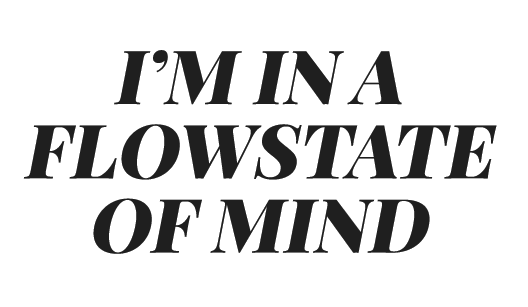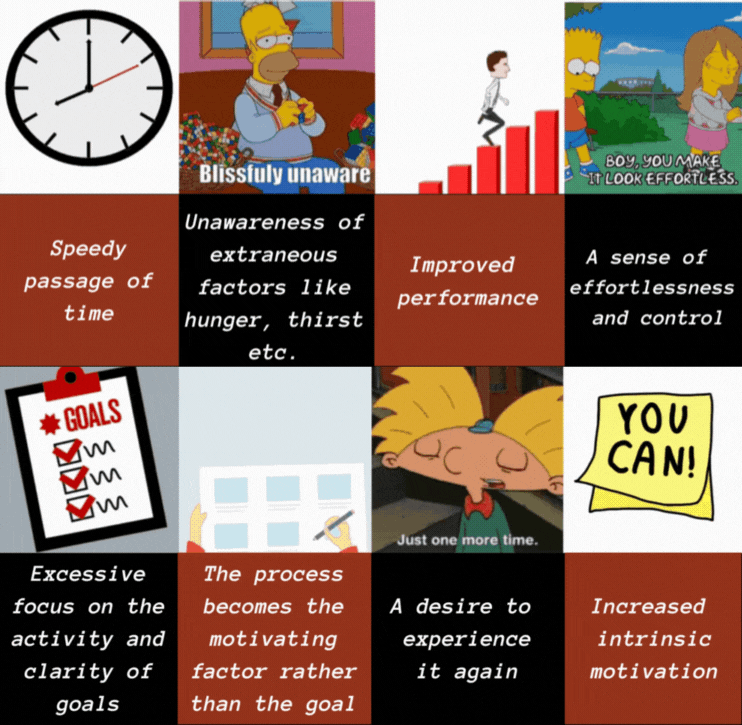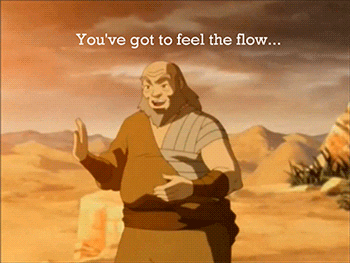Have you ever been so “in the moment” that you lost track of time and your surroundings?
Perhaps while you were engaging in something creative, working or just playing a video game?
If you answered “yes”, you may have experienced the state of flow.
What is flow?

In the 1970s, positive psychologist Mihaly Czhikszentmihalyi (yes, we took a while to get that name right too) introduced this theory as he observed a common experience in individuals when engaging in something that:
- Demanded their full attention
- Challenged their abilities
- Was of their interest
He recognized similar responses in artists, athletes, surgeons, musicians, and even chess masters and arrived at a conclusion that it is more likely to achieve a state of flow when engaging in stimulating activities than in leisure time. Although, a study by Steven Pritzker in 2007 suggested that flow can occur if a tv series is relevant to the viewer’s life.
Human beings thrive on rewards, don’t we? Rewards help us stay motivated and drive us to do more. For example, your salary may keep you from quitting your job or getting a scholarship may motivate you to work hard. This is what makes flow an exceptional experience.
A state of flow does not require an external reward such as money, recognition or other accolades. Infact, the rewarding nature of this experience is the reward in itself.
Signs that you have experienced flow
When in flow, people experience:

Why flow is good for you
This experience not only makes an activity enjoyable, but also enhances general wellbeing. How? Read on!
- Increased motivation: flow and motivation are directly proportional to each other i.e. when flow increases, motivation increases and vice versa
- Enhanced confidence: this state of being promotes self-esteem and boosts confidence
- Higher life satisfaction: a study conducted on adolescents proved that those who had experienced flow scored more on the life satisfaction scale and had better psychological well-being
- Boosts dopamine (feel-good hormone) levels: flow activates the reward system in the brain by increasing dopamine levels which in turn strengthens intrinsic motivation
- Intensifies happiness: flow impacts positive affect in general and reduces chances of feeling sad or disappointed
These are some of the many benefits of flow state. Although common, the experience of these benefits may possess individual differences. Flow promotes better performance and makes space for more learning too.
The lesser known side of flow
Flow state just like anything else has two sides to it’s coin. Although largely seen under a positive light, to maintain the flow state, one must create a balance between the activity and skill. For example, when creating a new painting, an artist may experience flow when they are focussed, engaged and challenged by the activity. The next time they want to replicate this experience, they may have to out-do their last performance. This may invigorate an unstoppable need to work, leading to workaholism and addiction.
The shift of self-awareness characteristic of the flow state may also lead to other health issues as it compromises physical needs such as food, water etc. In conclusion, flow is also an experience that is best when in moderation. The rarity of the experience is what makes it positive. If experienced too frequently or used as a coping strategy to feel happy, it may not have the same impact on positive affect.
How to find your flow?

Let’s help you remember the steps to find your flow, by giving it the name ‘EDGES’. Each alphabet signifies a step.
- Engage in what you like: choosing a task of your interest is the first step to achieving flow. This may be any task ranging from creative ones to everyday activities.
- Distractions: create a flow conducive environment by removing other distractions like noise and interruptions. Finding a specific area in your house and a time during the day where you are energetic may also help.
- Goal setting: flow is best achieved when there are clear goals. Set a goal(s) before you begin.
- Entertain a challenge: an activity may be boring if it does not involve a challenge that aligns with the person’s skill. Whereas, when the challenge is bigger than the level of skill, it may induce stress and anxiety. So, it is important to find the fine line between the two.
- Stop: although it is an invigorating experience, it is important to stop and take breaks too.
Seek the experience, but not at your own cost.

If you are someone that does not spend much time on your own and prefers social activity, here’s good news. You can achieve flow even in a group!
A study suggested that flow was a more enjoyable experience in an interdependent group where communication was possible. So, if hiking with your friend or playing a game on the playstation is when you find flow, then take our suggestion and go for it!
On an endnote, flow is a subjective experience and one that can add a sense of meaning and purpose to your life. Mindful engagement in flow may bring out many positive outcomes and may make your life a more satisfying one.
So, when in doubt, go with your flow. (Unless you’re tired. Then go to sleep.)


